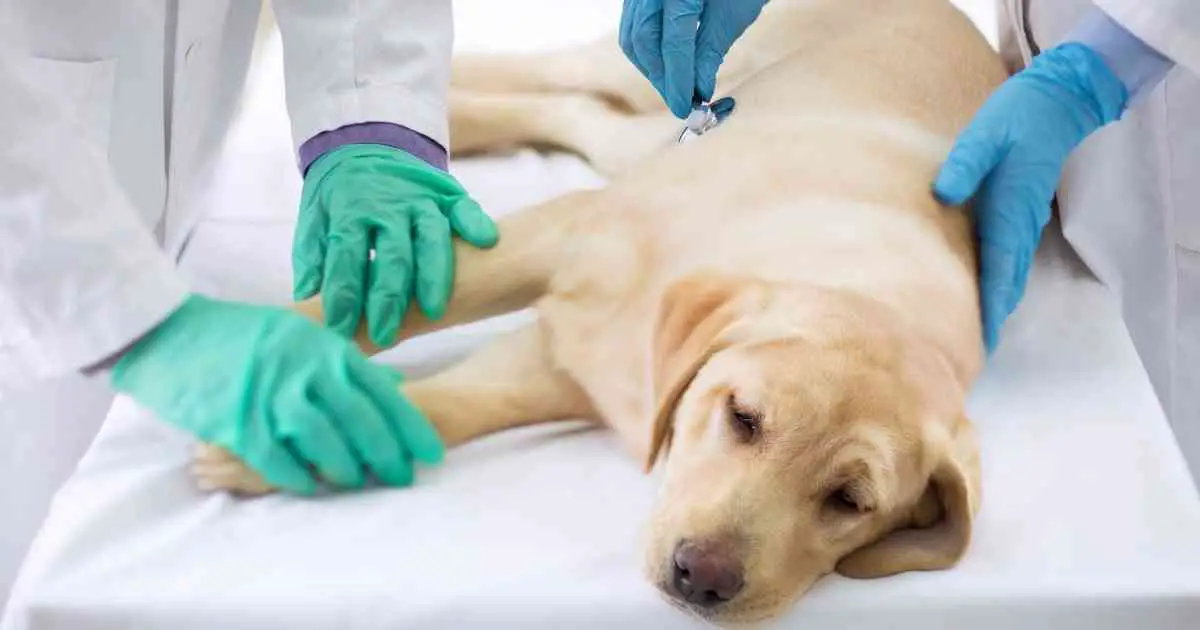A timely diagnosis is essential for people who may have the Human Immunodeficiency Virus (HIV). If given within three days of HIV exposure, a class of medication can prevent the disease from progressing into AIDS.
Effective antivirals are available for those who have already received a diagnosis, enabling them to live relatively normal lives. The diagnosis carries some responsibility, though, as it’s crucial to prevent the infection from spreading to others in addition to ensuring your health.
What about dogs, though? Can dogs get AIDS if exposed to someone who has it? Continue reading as we explore this question further.
What Is AIDS?
Caused by HIV, acquired immunodeficiency syndrome — or AIDS — is the advanced stage of infection when the virus has severely compromised the immune system. People with AIDS typically survive for three years without medication, and supportive care is required.
HIV is a virus that targets immune system cells, making an individual more susceptible to other illnesses and infections.
It is spread through sharing injection needles or direct contact with the bodily fluids of an infected person, most frequently during unprotected sex.
HIV cannot be eliminated by the human body, and there is no cure. Once you have HIV, you will have it for life.
If you have HIV and are not receiving tr
eatment, the virus will eventually erode your body’s immune defenses, leading to AIDS.
How Can You Tell If You Have HIV/AIDS?
Getting tested is the only surefire way to find out if you have HIV. Testing is a fairly easy process. You can request an HIV test from your doctor. They are also provided by many hospitals, drug rehab centers, community health centers, and medical clinics.
Additionally, HIV self-testing is available. Self-testing enables individuals to perform an HIV test and receive the results in the privacy of their own homes.
You can purchase a self-test kit online or at a pharmacy. Some community-based organizations and health departments also offer self-test kits at a discounted cost or for free. If you feel you may have been exposed to the virus or have symptoms of HIV/AIDS, you should get tested.
Symptoms of HIV include:
- Fever
- Chills
- Rash
- Night sweats
- Muscle aches
- Sore throat
- Fatigue
- Swollen lymph nodes
- Mouth ulcers
Some of the signs and symptoms of AIDS are:
- Rapid weight loss
- Persistent fever or severe night sweats
- Extreme fatigue
- Persistent lymph gland swelling in the neck, groin, or armpits
- More than a week-long bout of diarrhea
- Mouth sores, anus sores, or genital sores
- Pneumonia
- Blotches of red, brown, pink, or purple color on the skin, in the nose, mouth, or eyelids.
- Depression, loss of memory, and other neurological conditions
Can Dogs Get AIDS?

Dogs are not susceptible to the human immunodeficiency virus (HIV) and cannot get AIDS. A dog won’t become infected no matter how exposed it is.
HIV is delicate, and a dog’s mouth is not a hospitable environment for it to survive for long. Theoretically, the virus could spread to another person if a dog bit someone who had HIV and then bit someone else right away, but this has never been proven and is extremely unlikely.
Some nations investigate the origin of every case of HIV. An animal bite has never been considered a potential contributing factor.
Can Someone With HIV Keep Pets?
Yes. The majority of HIV-positive people can and ought to keep their pets. It can be satisfying to have a pet in your life. A pet has the potential to help you feel better both physically and emotionally. Pets are like family to many people, and they offer great companionship.
Nevertheless, you should be aware of the health risks associated with caring for or owning a pet. Animals may carry diseases that could harm you. Being aware of this can keep you safe from the risk of infection.
Animals can harbor bacteria, parasites, and fungi that can lead to conditions like rat bite fever, ringworm, toxoplasmosis, cryptosporidiosis, and cat scratch disease. Even in people who do not have HIV, these illnesses can result in infections, severe diarrhea, and skin lesions.
According to a study conducted by researchers at the UCLA School of Public Health, pet ownership may lessen the risk of depression in men with AIDS. Among the largest scientific studies to look at the health benefits of pet ownership, this study is also the first to look at the potential advantages of pet ownership for people with HIV or AIDS.
Men with AIDS who own pets benefit from a particular companionship level that makes it easier for them to handle the stresses of daily life. When people have a strong bond with their pets, the benefit is particularly noticeable.
The risk of infection is minimal if people follow safe pet handling guidelines, which include donning gloves when trying to clean a cage or litter box. It seems that the advantages of owning a pet outweigh those risks.
What Illnesses Can A Dog Get?

Even though dogs can’t contract HIV, they can still struggle and experience various conditions linked to immune system dysfunction. Signs of illness include:
- Unusual exhaustion and weakness
- Reduced appetite
- Recurrent diarrhea
- Persistent fever
- Coughing
- Colds
Immune system-related symptoms are included in the list above. But take note that the following conditions can also be identified in dogs:
- Pneumonia
- Arthritis rheumatoid
- Autoimmune disorders
- Flu
Conclusion
Always ensure your pet is in good health. Unless your dog has diarrhea or appears ill, special tests are not necessary. Your veterinarian can assist you in deciding which tests your pet needs if it appears ill. But can dogs get AIDS?
As we’ve covered, dogs cannot get AIDS. But they can get other immune-related diseases. Depending on your pet’s diagnosis, you can choose from a variety of treatments to give them medical attention.

